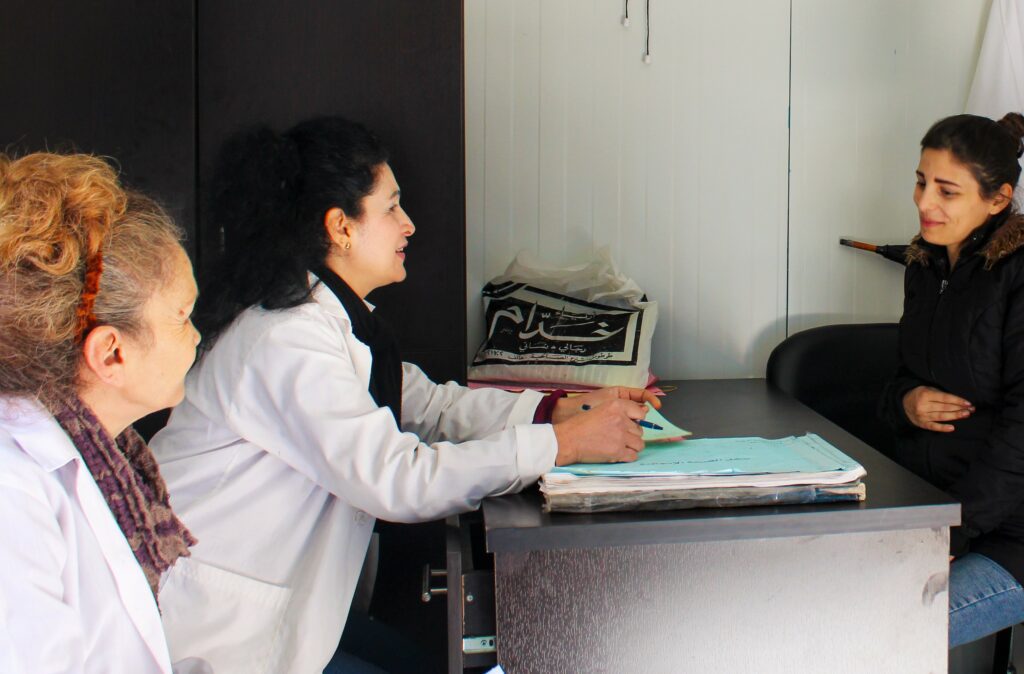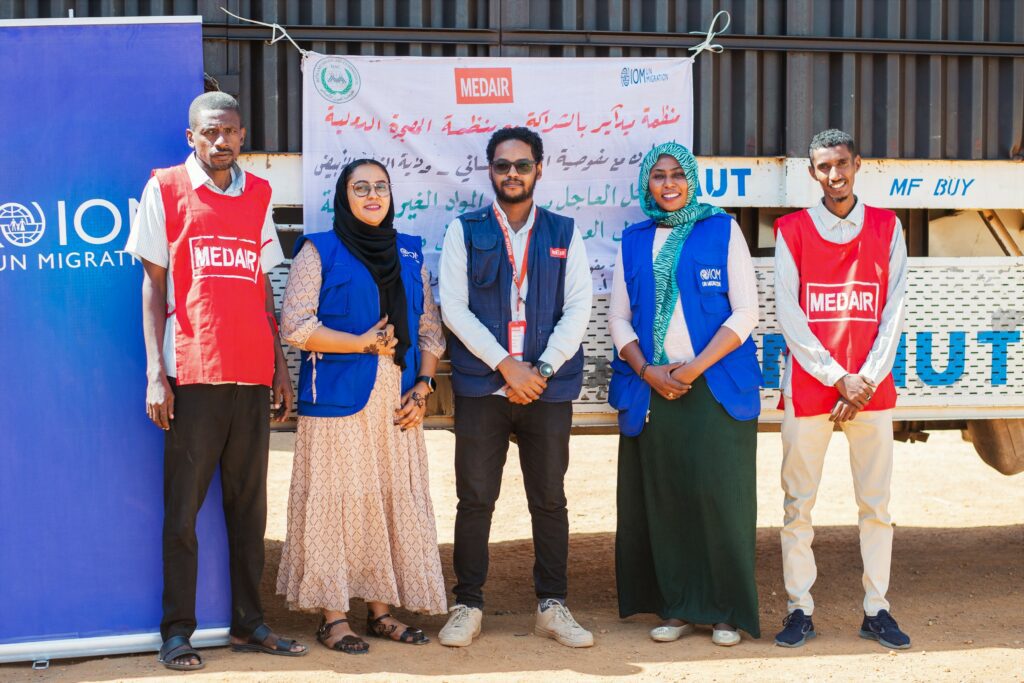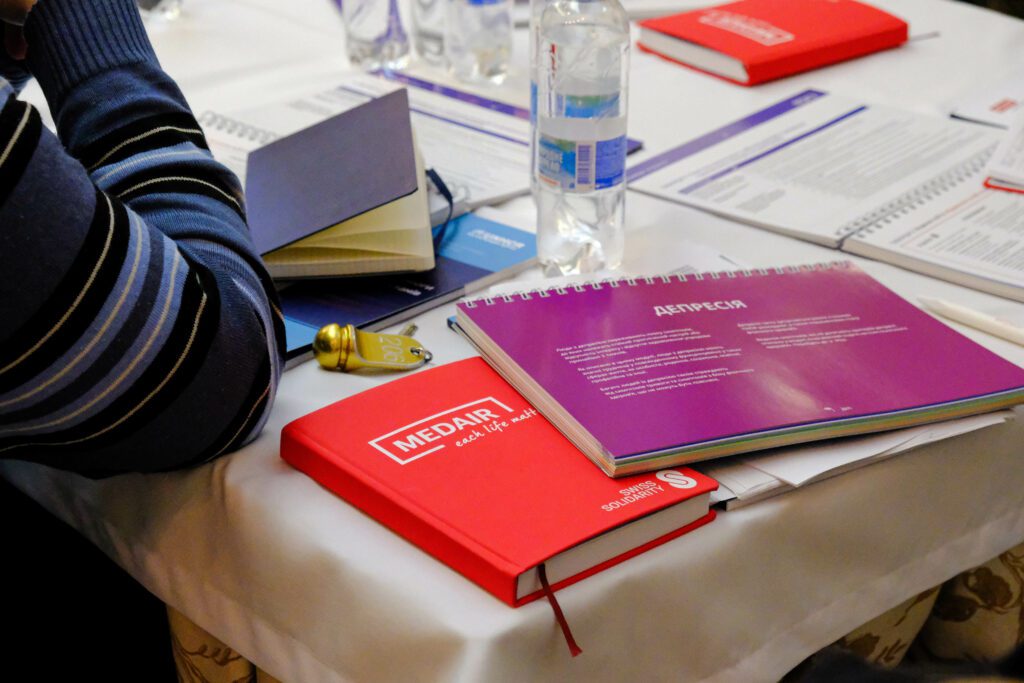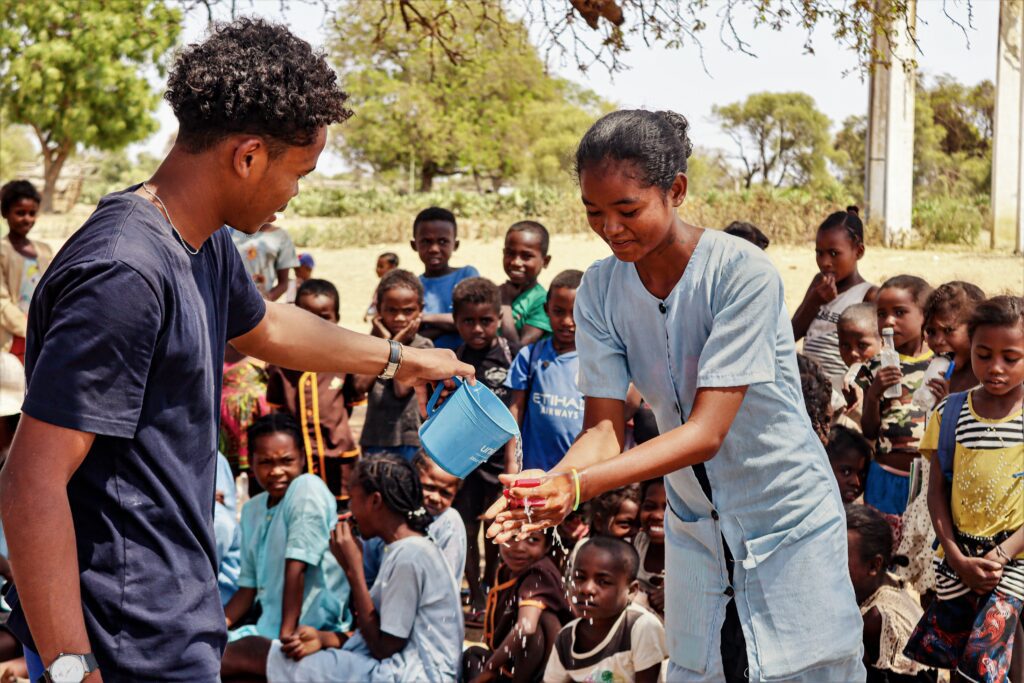Throughout the past 20 years, I have been involved in responding to humanitarian crises all around the world. I am consistently impressed by the perseverance that people harness to overcome their daily challenges regardless of the country or crisis. Their ingenuity is a source of inspiration to me and my colleagues as we search for better ways to deliver aid into remote and insecure locations.
As the Blockchain Project Manager with Medair, I believe we have found a tool that can significantly improve how we deliver aid. It’s not often that technology can be adapted to a humanitarian context, but here we have something that will benefit the people we help, as well as our donors and partners.
When I’ve met with donors, they are always interested in knowing “how much of the money actually reaches the people in need?” This is the heart of the issue: trust. Can donors trust humanitarians to be cost effective in delivering assistance to people in need?
When I first heard the oft touted blockchain motto, “don’t trust—verify”, it intrigued me. What could it mean for humanitarians? In fact, blockchain offers a solution to the challenges we face when attempting to transact at speed and at scale.
Imagine trying to provide cash assistance across international borders to tens of thousands of families within a week of a disaster. The opportunity to shift from our dependence on slow and expensive banks to a cheaper, faster and more secure solution, based on an open, decentralized network, is worth our time and money to investigate. Plus, the transparency provided by blockchain enables all participants to the transaction to hold the same level of visibility over the relevant information—not just the bank. The transparency provided by blockchain represents an opportunity to reimagine the donor experience.
At an innovation workshop at the Swiss Institute for Technology in Lausanne everyone in the auditorium appeared to be under 50 years of age. The presenter made an informal poll of the audience. “Do you trust charities?”, she asked. Noticeably, only a few hands went up. Then she followed with, “do you trust blockchain?” Nearly every hand went up. This was an eye opener for me, particularly since reports suggest Millennials and GenZ are as generous, and perhaps more so, than GenX and Baby Boomers (see here and here). Although it’s an oversimplification, younger donors support causes and projects, versus older donors, who support individuals and organizations.
So, how might blockchain reframe trust between humanitarian organizations and donors across these different generations? Well, it turns out that a Swiss fin-tech startup may already have the answer.
AIDONIC is a different kind of blockchain company; it’s run by humanitarians for humanitarians. I discovered them through Swiss Solidarity, a foundation that raises funds for humanitarian relief projects. Together we are testing the AIDONIC platform in a real-world humanitarian setting. Unlike other innovative technologies we’ve tested, the AIDONIC platform was built to solve many of the problems facing aid workers.
Severiyos Aydn, the founder of AIDONIC, spent a decade delivering aid, so he understands the context and challenges in getting help to people in need. Although some features are still to be rolled out, AIDONIC is already a game-changer. Aid agencies are able to manage and report on their fundraising, create beneficiary groups, and distribute aid within a single online space. Since each transaction is recorded to blockchain, the reports generated by the platform are tamper-proof. This enables humanitarians to deliver aid through local partners to people in need with the added assurance that the record of each distribution is 100% accurate.
Now, Medair is testing how AIDONIC can be used to attract new donors and establish trusting and transparent relationships. For example, on average Medair sends 93% of each donation directly to the field. The bulk of administrative costs are for expenses associated with delivering assistance, including financial audits, bank fees, training for staff, their salaries and insurance, and the equipment, materials, and vehicles they need to do their work. The funds reaching people in need of assistance can increase if the cost of delivering aid is lowered by even just 0.5%.
With support from Swiss Solidarity, Medair will compare the AIDONIC platform versus business as usual within a real-world humanitarian project, delivering cash assistance to people in need in Beirut. We will not only look for cost efficiencies in delivering assistance and improvement in the donor experience, but also how our enhanced transparency affects relationships with donors and stakeholders. Ideally, this will demonstrate improvement delivering aid—a topic I’ll cover in the next blog post. In the meantime, please join the conversation! I’d like to hear your perspective on this topic or answer any questions. Of course, we’re grateful for your support of this project, whether by sharing it in your network or with a donation.
This content was produced with resources gathered by Medair field and headquarters staff. The views expressed herein are those solely of Medair and should not be taken, in any way, to reflect the official opinion of any other organisation.





